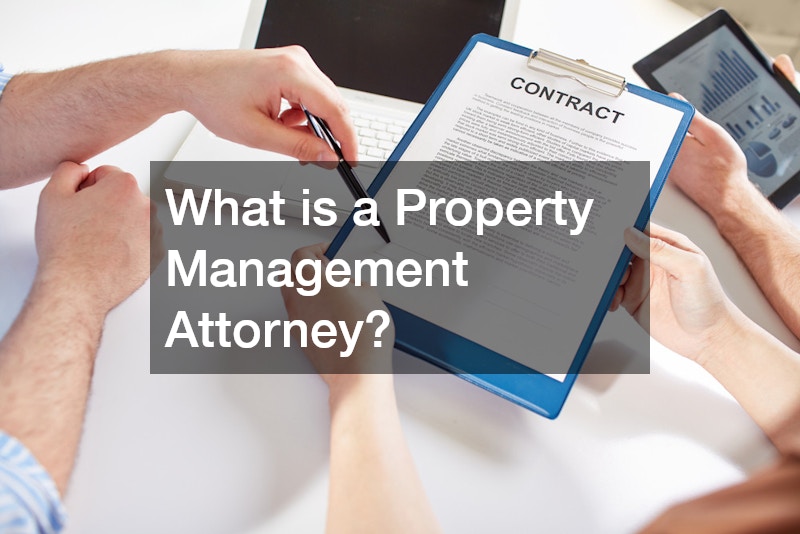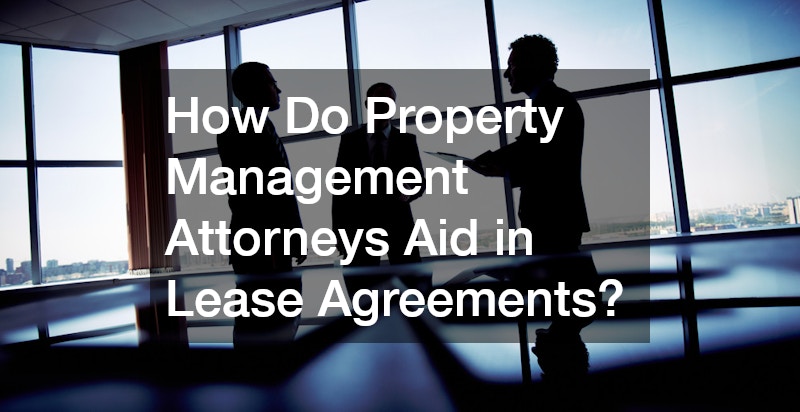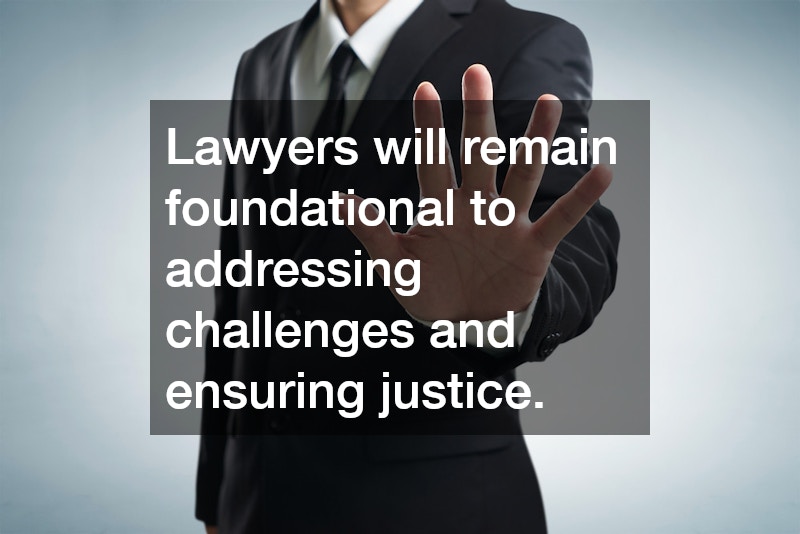
Hiring a property management attorney is a critical step for landlords, property investors, and real estate professionals who want to safeguard their assets and ensure their property operations run smoothly. These legal professionals play a vital role in navigating the complexities of real estate law, including landlord-tenant disputes, lease agreements, and regulatory compliance. As the real estate market continues to evolve and regulations become more stringent, the demand for specialized legal assistance has grown. A property management attorney ensures that every decision, document, and process adheres to local and state laws, reducing the risk of costly legal battles. Additionally, having an experienced attorney on hand empowers property owners to handle unforeseen legal challenges swiftly and effectively.
In an environment where issues such as property damage claims, tenant evictions, and contract disputes are common, having the right legal expert is more than just a luxury—it’s a necessity. From drafting legally sound lease agreements to representing landlords in court, these attorneys offer services that protect both financial interests and legal rights. Moreover, hiring a property management attorney doesn’t just prevent problems; it also opens doors to strategic advantages such as proactive legal planning, asset protection, and enhanced property value through legal risk minimization.
For those dealing with a broader array of legal needs, such as bankruptcy, criminal charges, or injury claims, working with specialized professionals like a bankruptcy attorney, criminal defense attorney, or personal injury lawyer ensures comprehensive legal support. In this guide, we will explore all aspects of hiring a property management attorney, from understanding their roles to finding the best fit for your unique property management needs.

1. What is a Property Management Attorney?
A property management attorney is a legal professional specializing in the laws and regulations that govern property rental, leasing, and overall real estate management. Their role is multifaceted and essential for property owners and managers looking to operate within the bounds of the law. Unlike a criminal defense attorney or appellate attorney who deals with different areas of the law, a property management attorney focuses specifically on matters related to real estate, tenants, and property law.
Their key responsibilities include drafting and reviewing lease agreements, resolving tenant disputes, handling evictions, ensuring legal compliance, and offering counsel on landlord rights. These professionals are also instrumental in protecting owners against lawsuits and fines that can arise from noncompliance or mismanagement. The educational and professional requirements for becoming a property management attorney are similar to those of other legal professionals: a law degree, passing the bar exam, and often additional experience in real estate law. However, their day-to-day work is uniquely tailored to property-related legal issues.
What sets property management attorneys apart from other lawyers, like pi lawyers or estate lawyers, is their niche expertise. While estate lawyers focus on wills and asset distribution, property management attorneys deal with living tenants, active lease agreements, and dynamic property laws. Their importance lies in their ability to help property owners avoid legal landmines and make informed decisions that align with both business goals and legal obligations.
2. Why Do You Need a Property Management Attorney?
Hiring a property management attorney is essential for several compelling reasons, starting with legal compliance. Property laws vary significantly by state and municipality, and even a small oversight can result in severe penalties or lawsuits. A seasoned property management attorney ensures all operations comply with local housing codes, fair housing laws, and rental regulations, reducing the risk of noncompliance.
Another crucial reason to engage a property management attorney is protection against lawsuits. Tenants can file claims for property damage, discrimination, unlawful eviction, and more. Without proper legal backing, landlords may find themselves unprepared to face these challenges. An attorney helps you respond appropriately and mitigates your liability. When it comes to creating and reviewing contracts, these professionals are invaluable. Their expertise ensures lease agreements are legally binding, fair, and clearly written to avoid ambiguity that could lead to disputes.
Disputes with tenants are inevitable in property management. Whether it’s issues over rent payments, lease terms, or maintenance obligations, a property management attorney can mediate and resolve conflicts efficiently. These attorneys also advocate for landlord rights, making sure property owners retain control over their investments while maintaining legal compliance. If you’re juggling other legal concerns, such as filing for bankruptcy or dealing with a personal injury case, having dedicated professionals like bankruptcy lawyers or personal injury lawyers ensures each aspect of your legal life is expertly managed.
Similarly, if you’re dealing with injuries related to accidents on or near your property, consulting a bicycle accident attorney can help ensure proper legal recourse and minimize liability.
3. How to Find a Qualified Property Management Attorney?
Finding the right property management attorney begins with leveraging your personal and professional networks. Ask for referrals from real estate agents, fellow landlords, or property managers who have previously worked with attorneys specializing in property law. These firsthand recommendations often lead to trustworthy professionals with proven track records.
Another effective method is using online legal directories. Platforms like Avvo, Martindale-Hubbell, and the American Bar Association’s directory allow you to filter attorneys based on specialization, location, and ratings. As you narrow down your options, evaluate each attorney’s credentials, including their education, certifications, and years of experience in property law. Don’t overlook their involvement in relevant legal organizations or associations.
Reading reviews and testimonials offers further insight into the attorney’s reputation and client satisfaction. Look for feedback that highlights their communication skills, reliability, and ability to resolve complex legal matters. Once you’ve identified a few potential candidates, schedule initial consultations to gauge compatibility. Use this time to discuss your legal needs, assess their responsiveness, and get a feel for their approach. Whether you’re also seeking assistance from an estate lawyer or an appellate attorney, choosing someone with a proven background in real estate law ensures better outcomes.

4. What Questions Should You Ask a Prospective Attorney?
Before hiring a property management attorney, it’s crucial to ask the right questions to determine whether they’re the best fit for your legal needs. Begin by inquiring about their specific experience in property management law. Ask how long they’ve been practicing and whether they’ve handled cases similar to yours. Their understanding of local and state regulations is also critical, as these laws greatly impact rental agreements and eviction processes.
Another essential question involves the attorney’s fee structure and payment terms. Clarify whether they charge hourly, offer flat rates for specific services, or require retainers. This helps avoid misunderstandings later. Discuss their communication practices, including how frequently they’ll update you and their preferred methods of contact. Reliable communication is key to a successful attorney-client relationship.
Also, evaluate their success rate and ask for case studies or references from past clients. This can provide insight into their capabilities and how they’ve handled challenging situations. If your legal needs extend beyond property issues, such as requiring a bankruptcy attorney or navigating tenant law, you’ll want someone who can refer or collaborate with other legal professionals effectively.
5. What is the Cost of Hiring a Property Management Attorney?
The cost of hiring a property management attorney varies based on several factors, including location, experience level, and the complexity of your legal needs. Typical billing structures include hourly rates, flat fees for specific services, or retainer agreements for ongoing representation. Hourly rates can range from $150 to $400 or more, while flat fees for lease drafting or contract review may be between $500 and $1,500.
Several factors affect these fees, such as the attorney’s reputation, the urgency of the issue, and whether litigation is involved. For example, representing a landlord in an eviction case may cost significantly more than reviewing a lease agreement. On average, property owners should expect to spend $1,000 to $3,000 annually if they regularly utilize legal services.
While this may seem like a substantial investment, the potential savings often outweigh the costs. A qualified attorney can prevent lawsuits, negotiate better lease terms, and ensure compliance, ultimately saving you thousands in legal fees and damages. When budgeting for legal representation, consider it a proactive measure to safeguard your investments. If you also need services from pi lawyers or have property damage claims, bundling legal services or choosing a full-service firm may offer cost efficiencies.
6. When is the Best Time to Hire a Property Management Attorney?
Timing is crucial when hiring a property management attorney. Ideally, you should involve legal counsel at the beginning of your property management journey. Starting with an attorney ensures your processes, documents, and tenant agreements are legally sound from day one. Proactive legal risk mitigation helps avoid future conflicts and expenses.
Another optimal time is when there are significant changes in property laws or local ordinances. Attorneys stay current with legislative updates and can guide you in implementing necessary changes. Legal disputes, such as tenant lawsuits or property damage claims, are clear indicators that immediate legal help is necessary. Waiting too long can escalate the issue and limit your options.
Additionally, if you’re planning a new development project or expanding your portfolio, having a property management attorney on board early can prevent zoning or compliance issues. Whether you’re navigating tenant law or working alongside other professionals like bankruptcy lawyers, timely legal intervention ensures you stay protected.

7. How Do Property Management Attorneys Aid in Lease Agreements?
Lease agreements are fundamental to property management, and a property management attorney plays a pivotal role in ensuring they are effective and legally compliant. They begin by drafting harmonious lease terms that balance the rights of landlords and tenants. This includes clauses on rent payments, maintenance responsibilities, security deposits, and lease duration.
Attorneys ensure these agreements align with local, state, and federal regulations, reducing the likelihood of legal disputes. They are also skilled in negotiating tenant contracts, helping landlords secure favorable terms without compromising fairness or legal integrity. Preventing lease violations starts with clear language and enforceable rules; an experienced attorney ensures your leases are both thorough and understandable.
Lease renewals and terminations are other areas where legal guidance is invaluable. Property management attorneys help draft renewal notices, modify terms, and ensure terminations follow legal procedures. Whether you’re managing one property or a large portfolio, their involvement streamlines your leasing process and minimizes legal risks.
8. What Role Does a Property Management Attorney Play in Tenant Evictions?
Evictions are among the most legally sensitive actions a landlord can undertake. A property management attorney ensures the eviction process follows all applicable laws, from issuing the proper notices to representing landlords in court. Understanding eviction laws is essential, as mistakes can result in delays, fines, or even countersuits.
Attorneys draft and deliver compliant eviction notices, specifying the reason for eviction—whether it’s nonpayment of rent, lease violations, or illegal activity. Should the matter escalate, they represent landlords in court, presenting evidence and arguing the case. Their presence often increases the likelihood of a favorable outcome.
Ensuring legal eviction procedures are followed is critical to avoid accusations of retaliation or discrimination. Additionally, a property management attorney helps mitigate potential backlashes from tenants, such as slander, vandalism, or legal complaints. By handling evictions lawfully and professionally, you protect your reputation and maintain control over your property.
9. How Can a Property Management Attorney Protect Your Investments?
Investment protection is a core function of property management attorneys. They provide risk management strategies that identify potential legal vulnerabilities before they become liabilities. This might include audits of lease agreements, compliance checks, and reviews of business practices.
They also offer asset protection services, such as advising on business structure (e.g., LLCs) and insurance coverage to shield personal assets from legal claims. Reviewing investment contracts is another key area, as these documents often contain terms that can significantly impact returns and obligations.
Attorneys monitor legal trends and shifts in the property market, offering timely advice on how to respond. They also provide insights into property tax liabilities, ensuring you’re not overpaying or violating tax laws. Whether you’re working with a pi lawyer, a bankruptcy attorney, or an estate lawyer, a property management attorney adds another layer of protection to your portfolio.

10. How to Work Effectively with Your Property Management Attorney?
A successful relationship with your property management attorney begins with clear communication. Be upfront about your goals, concerns, and the scope of legal services you need. Providing accurate and complete information enables your attorney to deliver the best advice and representation.
Define goals and expectations early in the relationship. Whether it’s reducing legal risks, drafting bulletproof lease agreements, or handling tenant disputes, clarity ensures alignment. Regular review meetings can help track progress, address new legal issues, and adjust strategies as your property portfolio evolves.
Evaluating attorney performance is also important. Assess how well they communicate, the quality of their legal documents, and the outcomes of any disputes. A great property management attorney should feel like a strategic partner, not just a service provider. Collaboration with other specialists, such as appellate attorneys or bankruptcy lawyers, further enhances the value they bring.
Why Every Property Owner Needs a Property Management Attorney Today
Hiring a property management attorney is not just about solving problems—it’s about preventing them, optimizing legal strategies, and protecting your most valuable assets. From ensuring legal compliance to handling complex evictions and lease negotiations, these professionals offer a level of expertise that general practice lawyers cannot match. They bring a nuanced understanding of local and state property laws that allows landlords and property managers to make confident, informed decisions.
In today’s legal landscape, property owners face increasing challenges. Regulatory frameworks are constantly changing, tenants are more legally aware, and the potential for costly lawsuits is ever-present. Whether it’s drafting lease agreements or advocating for landlord rights, a property management attorney acts as your legal safeguard. Their role becomes even more critical when you’re also dealing with issues that may require a bankruptcy attorney, criminal defense attorney, or estate lawyer. By aligning yourself with the right legal experts, you build a resilient legal infrastructure for your property business.
Ultimately, the decision to hire a property management attorney is an investment in peace of mind, legal security, and long-term profitability. Don’t wait for a legal issue to arise—take a proactive step today to ensure your property management strategy is built on a solid legal foundation.



